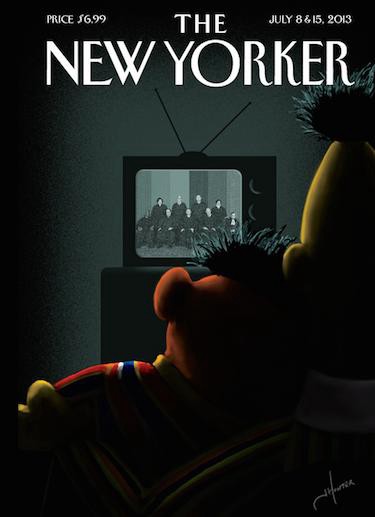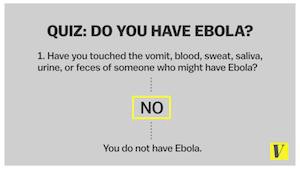Rape in the Time of Fandom

Four accusations of abuse, the consequences of which have played out largely online. In the alt-lit personality cult:
This past weekend, two young women came forward with personal stories of rape and abuse perpetrated by a magazine editor, Stephen Tully Dierks, prominent in the hip young “alt-lit” community. But it was only the start for the close-knit and famously gossipy scene.
Now, a young man has accused alt lit’s most famous author, Tao Lin, of statutorily raping him when he was 16. Lin fervently denies the allegations, and has said he is retaining a lawyer to dispute the accusation. Another prominent writer and artist, Stephen Michael McDowell, has said that he considers himself “a rapist, a sex offender, and a predator.”
In the YouTube prank subculture:
The new allegation comes a week after the former U.K. Big Brother contestant sparked outrage with a prank video that features him groping and pinching women on the street. In the video, Pepper approaches women on the street and asks for directions. As the women answer him, Pepper groped them with his hand hidden beneath a large sweatshirt. Pepper said the video was a “social experiment” and the women were in on the stunt.
But soon after the video was published, three women came forward with stories of being inappropriately touched or harassed by Pepper.
And some time ago, in the world of Vine, the internet’s own celebrity complex:
We don’t know what actually happened between Mr. Lepore and Ms. Vazquez that night. Maybe the accusations are legit; maybe not. What we do know is that he took a plea deal on Feb. 21, pleading guilty to felony assault and effectively ridding himself of the rape charge.
The only barrier between truly native internet celebrities and their fans is volume; there are more people who want to interact with them than is possible or practical. Otherwise they’re just right there: nothing insulates them from their fans nor their fans from them. They post and perform in the same shared medium. They create exclusive-feeling spaces within previously open ones.
They also create human power differentials out of thin air, which, for a particular type of person, must be intoxicating. They become famous but remain unknown outside of their subcultures; they are celebrities but they are not rich. Perhaps these subcultures make them feel famous but invisible and therefore invincible. Perhaps they don’t just feel powerful, they feel immune and powerful. Perhaps this leads them to conflate fandom with consent. Perhaps they feel entitled to people they see as theirs.
Perhaps they know that any accuser they might face would have to face an informal jury of peers whose allegiance to the subculture and its celebrities is what qualifies them as peers in the first place (all of the above men have since attempted to discredit their accusers online). Perhaps they know that any accusations in the “real world” would be hindered by the mainstream’s reflexive dismissal of their subculture as young and frivolous and of the internet, of its men as effeminate or strange or nonthreatening, of its composition as too loose or progressive or new to foster something so horrible as rape — this, they might believe, is what makes them different from real famous people, and less accountable. Perhaps they are just older and their fans quite a bit younger.
Perhaps, to a predator, this is all intuitive: Internet celebrity is just another opportunity, like management or teaching or parenthood, to assert power over victims in new and profound ways.
This post has been updated to reflect changes in a post quoted from Gawker regarding accusations against Tao Lin.
Death Name Difficult
Death Name Difficult
“Two months since war planes first started striking Islamic State targets, operations in Iraq and Syria don’t have a fancy name. One of the generic placeholders found on classified Pentagon PowerPoint slides reads: ‘Operations in Iraq and Syria.’
To some military officers, Inherent Resolve didn’t properly evoke the Middle East. Others faulted it for failing to highlight the international coalition the U.S. had assembled. Still others simply found it uninspiring.”
New York City, October 1, 2014

★ The new month, high autumn, arrived in stupefying gray. The children, disturbed by thunder and cloud-trapped street noise in the night, slumbered on and on. It was drizzling, the drops not large enough to wet things, but large enough to fall rather than floating. Someone had been coughing in the building hallway; a few more were coughing in the subway car. Downtown, the drizzle had gotten heavy enough to call for the umbrella. By evening it had subsided. Leaves were stuck to the sidewalk. A few drifting blue patches appeared in the gray to the north, even as dingy murk held on to the south.
Movie Worse Than Expected
Scott Tobias on Men, Women & Children
:
Despite a few last-ditch pleas of moderation, Reitman offers a comprehensive portrait of The Way We Live Now, and the overall effect is a mass freakout, like a roomful of grandparents booting up their first AOL CD-ROM. And while there’s no doubt that the Internet age has profoundly transformed the culture, adding new dangers and stresses and altering the nature of how we communicate, blind panic is not a sophisticated adult response. Hiring Emma Thompson to bring her British gravitas to the voiceover narration isn’t sophisticated, either. Nor is opening the movie in outer freaking space. Politicians can get away with such a nauseating combination of self-importance and social alarm, but artists cannot.
Now consider an unlikely twist: What if this movie is a runaway sensation? What if it somehow NAILS THE MOMENT, for audiences? Relatedly, American Beauty is now fifteen years old.
Cover Stories
Cover Stories

The other day, the New York Times observed that there has been “a shift in The New Yorker’s cover art toward the topical and provocative.” One can see that change, literally, where, “at The New Yorker’s Midtown offices, a wall of covers arranged in chronological order shows a distinct change in tone,” with a turning point being somewhere “around Sept. 11, 2001,” when it ran a stark, all-black cover.
This is largely in tune with a shift in the tone of the magazine itself, which has grown only more responsive to current events in recent years (in contrast to its stance under every editor that preceded Tina Brown in 1992). But there’s another value in producing provocative covers, one scarcely implied by the piece’s author, Ravi Somaiya, who notes that “a number of The New Yorker’s covers have made headlines of their own.” And while that is literally true, particularly in the instance of the provocative Obama fist-bump cover, a webbier way of saying this is that these kinds of covers have a tendency to go viral. While they are not expressly made for the web or to go viral — the art editor Françoise Mouly, was hired in 1992, by Brown — the medium of cover art might as well be tailor-made for spreading and commenting: Covers require little investment from viewers (who perhaps already have some image of the New Yorker in mind even when they arrive, even if they never manage to actually read it), far less than articles, in order to engage with a cover — and share it. It’s the only New Yorker form more web-native than cartoons, particularly in the increasingly image-driven sharing economy (despite how much media people loooove talking about Long Things). And it works.
The New Yorker is clearly not unaware of the medium’s inherent suitability for the web and its ability to generate traffic on its own; Somaiya’s piece is pegged in part to a stunt cover, its first-ever animated GIF “cover” of a rainy day (which, in its selective focus, is itself a depiction that utilizes well-worn Instagram trope) that can obviously only be viewed on a screen. But the potential for these kinds of covers to go viral in and of themselves is based in large part on a form of novelty that is heavily grounded in the context of being a New Yorker cover — and not necessarily the statement itself. If novelty and/or shock is the fuel that powers the engine of these covers’ virality, the obvious questions, which may be unfair, are how inexhaustible that supply is and how much of it will the New Yorker tap; the magazine has been extremely judicious in its deployment of truly jarring covers, and it also has more capital to start with than other publications who were then far less prudent about what they put on their covers.
IDK, whatever, I like the new covers.
Books On Lego

BrickJest, a collaboration between Kevin Griffith, an English Professor at Capital University, and his eleven-year-old son, Sebastian, reenacts scenes from David Foster Wallace’s most famous novel, even though Sebastian has not even read the book. I called them up to get a little background on their project.
So, why’d you start the site?
Kevin Griffith: We were interested in doing something ambitious together. We had seen a book called The Brick Bible, where somebody took their New Testament and did it in Legos. We thought, is there any kind of novel or non-Biblical text that would offer a similar challenge? I teach Infinite Jest at Capital University, so we thought we might try that. It’s over a thousand pages long. We thought it would be kind of cool if we could make it through that.
Kind of off-topic, but how do you even teach Infinite Jest?
KG: The class is a critical theory class, so we look at it in a few different theoretical perspectives. We look at it through a feminist perspective, through deconstruction, we look at it from neocriticism in some way, Marxism, and then we try to look at it through our own critical lenses as well through close reading. That’s how we did it. You can’t really follow it through as a linear text.
Were there other novels you were considering to produce in Lego-form?
KG: It was Infinite Jest right away. That was the one since I knew it and had read it several times. Did you want to talk to my son real quick?
Sure!
Sebastian Petrou Griffith: Hello.
Have you read the book before?
SG: No, I haven’t read the book. I would kind of like to, but my dad said really clearly that it’s not for children. I have to wait until I’m eighteen.
What do you like about doing the project?
SG: I just like making the models and it’s kind of cool learning more about Infinite Jest because my dad talked about it a lot and he taught it and it’s one of his favorite books. So, it was kind of nice learning more about it now.
What books do you like now?
SG: I deeply enjoy The Lord of the Rings. The Percy Jackson series is pretty good, too.
Do you get some of what’s going on in Infinite Jest because of the project?
SG: Yeah, I have a vague idea. It’s a book about drugs and tennis and stuff like that.
Do you have a favorite photo?
SG: I really like very first one I took, a kind of classic one that’s the bug sitting on the shelf. And the one of “The Barrel Incident.”
Okay. Let me talk to your dad again. Are there any plans beyond this site?
KG: We’ll probably add a little bit more to the website. And we’ve been contacted, believe it or not, about a potential movie, and a potential book. We’ve been invited to Germany for a book fair. We’ve really caught on overseas. So it’s kind of exciting. We’ll see how everything pans out. The website was getting fifteen thousands hits a day. It’s pretty amazing.
What do you think it is about this book?
KG: I think it’s the book that will be remembered in the post-Vietnam era. I heard from someone in Paris yesterday — they’re doing a big conference there because they’re releasing it in the French translation, so that’s kind of cool. I think the book is the first post-postmodern novel — that is, a book that’s actually trying to find meaning in life beyond just being ironic and hipsterish and post-modernist. It’s really about returning to values and what is it about being human that’s worth living for when, really, books up to then were making clever jabs at popular culture and that kind of thing. I think Foster Wallace was really onto something about the culture and that we needed something that flew in the vacuum left when postmodernism came around. I think that’s why it gets a lot of attention. If that makes any sense.
Rick Paulas once read a theory that David Foster Wallace put in all those footnotes to force the reader to mimic the actions of a tennis match while reading, which is really fantastic and great, even if it’s not true.
Images courtesy of BrickJest
Flying Lotus and Kendrick Lamar, "Never Catch Me"
An unexpectedly devastating video for the producer’s first collaboration with Kendrick Lamar. Up and away. (See also.)
"Calm Down," the Movie, Part II

The White House Briefing Room would have been empty if the remaining reporters had anywhere to go. It was the fourth scheduled press conference that had come and gone without so much as a knock on the barricaded door. Before the TVs went out, things seemed to be slowing down. But before the internet went out, there were rumors of infection in the West Wing. By the time the phones went out, there was no doubt.
Among the reporters and low-level aides stuck in this room was a young man. A writer. Others were worried and devastated. He seemed merely preoccupied, his brow furrowed as if he was working on a particularly difficult Christmas puzzle.
It was 15:05 EST, an hour and five minutes past briefing time. Nothing, again. Suddenly, the young man stood up. He tried to pull the wrinkles from his suit. He cleared his throat on the way up the dais, where he stood for a few seconds shuffling old papers. His colleagues looked up, tired and confused. He then spoke assertively into the dead mic, looking out over the dim room. “Everything… is good,” he explained. “Don’t panic.” He smiled. It was his time. The first thing to do is to calm down.”
(Previously.)
New York City, September 30, 2014

★★ Gray clouds stood behind grayer clouds in a jumbled assortment. A horse carriage rolled by below the pediatrician’s office window, and then an open-topped bus, the upper deck completely empty. Here and there the brooding looseness of the clouds admitted some blue: an long opening over New Jersey, a weak spot in the cover high above and beyond Lower Manhattan. One raindrop landed, and only the one. Over time, the irregularities diminished; the day stayed dark and chilly. Even to the end, there was a brighter if not blue patch in the west — briefly edged in pink at sundown. The night air was cool enough for open windows.
All the Lines from the "Interstellar" Trailer, Except with Exclamation Marks
McConaughey: We used to look up in the sky and wonder at our place in the stars! Now we just look down and worry about our place in the dirt!
[Unidentified]: Go for main engines start! T-minus ten!
Caine: We must confront the reality that nothing in our solar system can help us!
[Unidentified]: Nine!
McConaughey: I’ve got kids, professor! How long would I be gone!
[Unidentified]: Eight!
Caine: I’m asking you to trust me!
[Unidentified]: Seven!
McConaughey: Murph! You have to talk to me Murph!
[Unidentified]: Six!!
McConaughey: We need to fix this before I go!
Foy: You have no idea when you’re coming back!
[Unidentified]: Five! Main engine start!!
Hathaway: Couldn’t you have told her you were going to save the world!
McConaughey: No!
[Unidentified]: Four!!
McConaughey: When you become a parent!
[Unidentified]: Three!
McConaughey: One thing becomes really clear!
[Unidentified]: Two!
McConaughey: And that is that you want to make sure your children feel safe!
[Unidentified]: One!
Rocket: Phhhhhhwaa!
McConaughey: I’m coming back!
Foy: When!
McConaughey: [Draws breath]! I love you forever!
Possibly Topher Grace: Potentially habitable worlds right within our reach!
Hathaway: Could save us from extinction!
McConaughey: Here we go!
Bently: You can’t just think about your family! You have to think bigger than that!
McConaughey: I am thinking about my family and millions of other families!
Hathaway: Maybe we’ve spent too long trying to figure all this out with theory!
Probably Hathaway: Love is the one thing that transcends time and space!
Caine: Do not go gentle into that good night! Old age should burn and rave at close of day! Rage rage against the dying of the light!!
Hathaway: We’re not gonna make it!
McConaughey: Yes you are!
McConaughey: We’ll find a way! We always have!
Bonus content, from the other version:
McConaughey: Those aren’t mountains! They’re waves!
